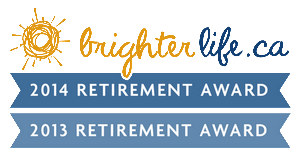Yesterday I touched on the fact that senior men are more likely to abuse alcohol and senior women more likely to abuse medication. I touched on some of the issues with alcohol and today my focus will be on prescription drug misuse.
Prescription drug abuse is defined as the misuse or nonmedical use of a controlled pharmaceutical drug (i.e. needs a prescription) for something other than its intended purpose. For example the prescription belongs to someone else, or you take it to feel good or high, or you take the drug while drinking alcohol or you take a higher dose of the drug or take it when you do not need to take the drug.
Abuse of prescription drugs can produce serious health effects and lead to substance dependence. This can be extra dangerous among seniors partly because we are more likely to take multiple prescriptions, thus increasing the risk of negative interactions. For example those who take benzodiazepines (e.g. Xanax, Valium) more likely to fall or have a car accident.
To understand the possible extent of the problem you need to understand that 20% of Canadians over the age of 60 obtain long-term prescriptions for pain.
Research into prescription drug use among B.C. seniors showed that we are taking approximately 15.7 prescriptions each, according to the Canadian Centre for Substance Abuse. That is a lot of drugs.
In BC the government set up Pharmanet which links B.C. pharmacies to a central data system. This program was set up to prevent accidental duplication, fraud, drug interactions and dosage errors.
In a recent year, over 47 million prescriptions were processed and the system flagged more than 24 million potential drug interactions. The role of Pharmanet in detecting possible interactions and dosing errors is important. However, the statistic about the number of potential interactions is really scary.
Prescription drug abuse is defined as the misuse or nonmedical use of a controlled pharmaceutical drug (i.e. needs a prescription) for something other than its intended purpose. For example the prescription belongs to someone else, or you take it to feel good or high, or you take the drug while drinking alcohol or you take a higher dose of the drug or take it when you do not need to take the drug.
Abuse of prescription drugs can produce serious health effects and lead to substance dependence. This can be extra dangerous among seniors partly because we are more likely to take multiple prescriptions, thus increasing the risk of negative interactions. For example those who take benzodiazepines (e.g. Xanax, Valium) more likely to fall or have a car accident.
To understand the possible extent of the problem you need to understand that 20% of Canadians over the age of 60 obtain long-term prescriptions for pain.
Research into prescription drug use among B.C. seniors showed that we are taking approximately 15.7 prescriptions each, according to the Canadian Centre for Substance Abuse. That is a lot of drugs.
In BC the government set up Pharmanet which links B.C. pharmacies to a central data system. This program was set up to prevent accidental duplication, fraud, drug interactions and dosage errors.
In a recent year, over 47 million prescriptions were processed and the system flagged more than 24 million potential drug interactions. The role of Pharmanet in detecting possible interactions and dosing errors is important. However, the statistic about the number of potential interactions is really scary.
Available evidence suggests that Canadians are among the heaviest consumers of psychotropic medication in the world. However, there are few Canadian statistics on the number of people who use prescription drugs for non- medical purposes. There is minimal research information available regarding the extent of prescription drug abuse in Canada.
But we do know somethings we know that the most commonly abused drugs are:
- Opiates used for pain relief (e.g. such as codeine, morphine, Vicodin and oxycodone)
- CNS (central nervous system) depressants used for anxiety, panic disorders and sleep disorders (e.g. Nembutal, Valium and Xanax) These slow normal brain function and produce a drowsy, calming effect
- Stimulants and amphetamines for weight loss programs and sleep disorders (e.g. Dexedrine, Ritalin and Adderall). These increase alertness, attention and energy. They also increase blood pressure, heart rate and blood glucose
